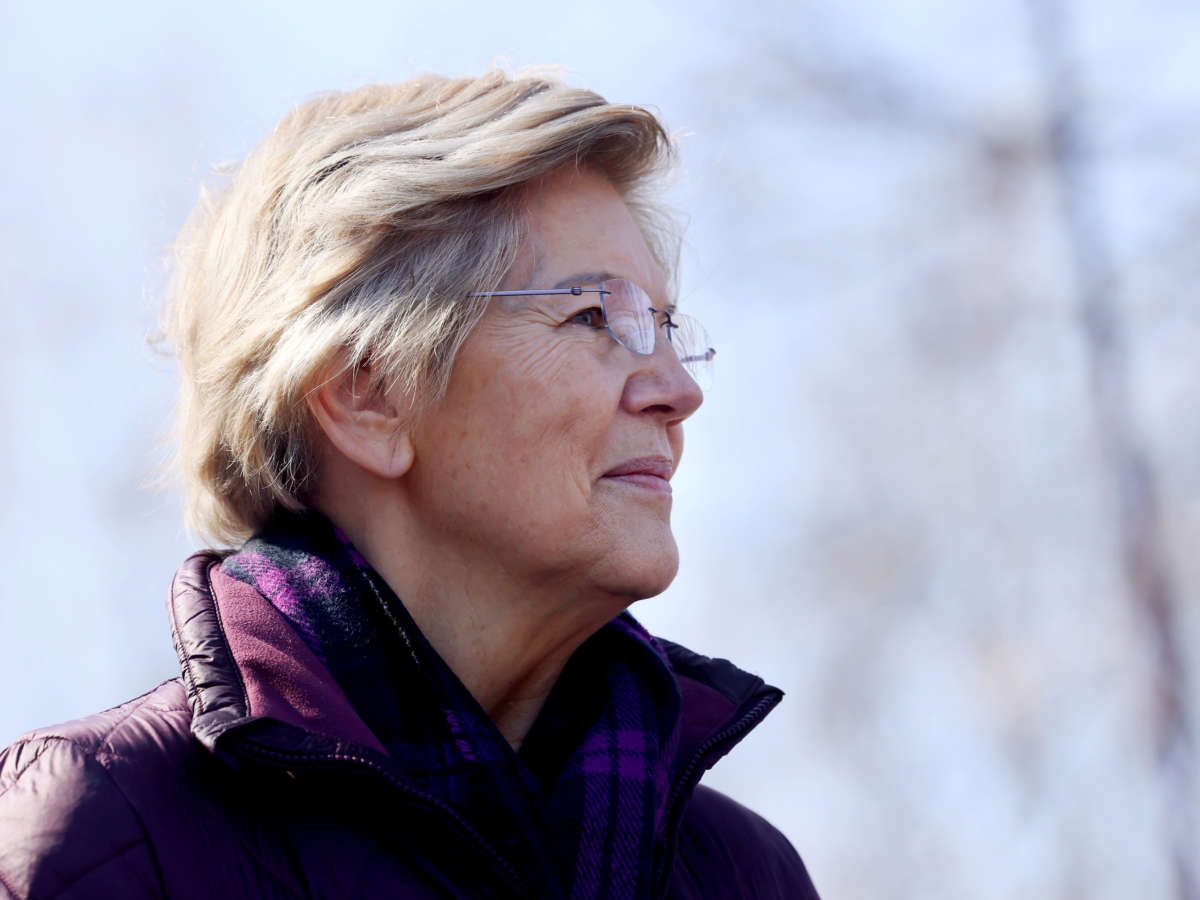Sen. Elizabeth Warren (D-Massachusetts) has urged the Biden administration to take action to lower prescription drug prices after a group of legal and public health experts found that the executive branch has the power to do so without approval from Congress.
In a letter to Health and Human Services (HHS) Secretary Xavier Becerra, Warren wrote that the agency should heed the advice of experts and “use its executive powers to lower drive prices, as explicitly contemplated by the Department of Health and Human Services’s Comprehensive Plan for Addressing High Drug Prices.”
The letter follows a note that experts sent to Warren last week detailing how existing laws give HHS legal tools to intervene when “excessive” drug prices are negatively affecting public health.
“These tools can help the Administration break patent barriers, foster competition where currently there is none, and drive down prices. Critically, using them requires no additional congressional action,” the experts wrote.
The experts, led by professors and legal students from Harvard, Yale and Columbia, pointed to a law known as “government patent use power,” which gives the government the authority to use a patented technology without a license; the Defense Department uses the law to procure technologies like bullets and night vision goggles, for instance. In the past, the government has used this law to purchase patented medicines at a lower cost, but lawmakers haven’t used it for this purpose since the 1970s, the experts wrote.
“Today, the federal government could and should use this power to curb excessively high drug prices paid by the government,” they said. The government doesn’t need to jump through specific hoops to use the law, they wrote, and “it can simply buy patented drugs from a low-cost manufacturer, or it can manufacture drugs itself.” This could drastically lower the cost of drugs used by Medicare and Medicaid.
The letter also cites a 1980 bill known as the Bayh-Dole Act, which was adopted to provide the American public access to inventions that were created using government funds and thus tax revenue.
“[W]hen the government directly funds research that results in a patent, the Bayh-Dole Act gives the government two additional tools: a royalty-free license in that patent and a right of the government to ‘march in’ on the patent to ensure that the resulting products are ‘available to the public on reasonable terms,’” said the letter writers.
The combined use of Bayh-Dole and the patent use power law would be especially powerful, they said, and could help to significantly lower drug prices and expand access to crucial drugs.
President Joe Biden has previously called for action to lower prescription drug prices via his social spending bill, known as the Build Back Better Act. But the pharmaceutical industry was vehemently opposed to the drug price provision in the bill, lobbying hard against the measure and persuading some conservative Democrats to oppose its inclusion as well.
Ultimately, the Build Back Better Act was killed by Senators Joe Manchin (D-West Virginia) and Kyrsten Sinema (D-Arizona) and the prescription drug pricing plans died with it. Earlier this year, Sen. Bernie Sanders (I-Vermont) demanded that the Senate floor take up debate on his and Sen. Amy Klobuchar’s (D-Minnesota) bill to allow Medicare to access lower drug prices, but the debate was blocked by Sen. Mike Crapo (R-Idaho).
If the Biden administration takes executive action to lower drug prices, circumventing Congress on the issue altogether, it would likely be an enormously popular move. Last year, polling found that the public overwhelmingly supported Sanders’s proposal to give Medicare the ability to negotiate prescription drug prices, with 88 percent of people surveyed saying that they supported the proposal.


